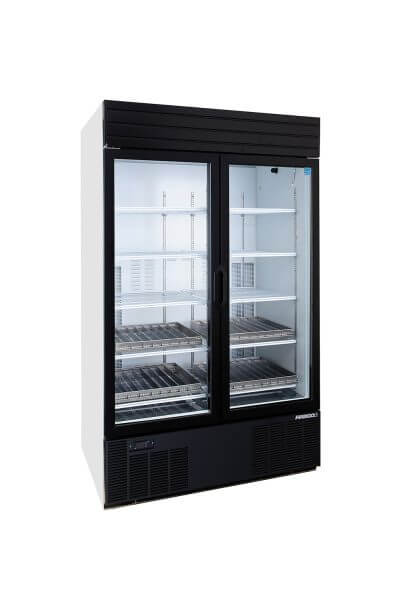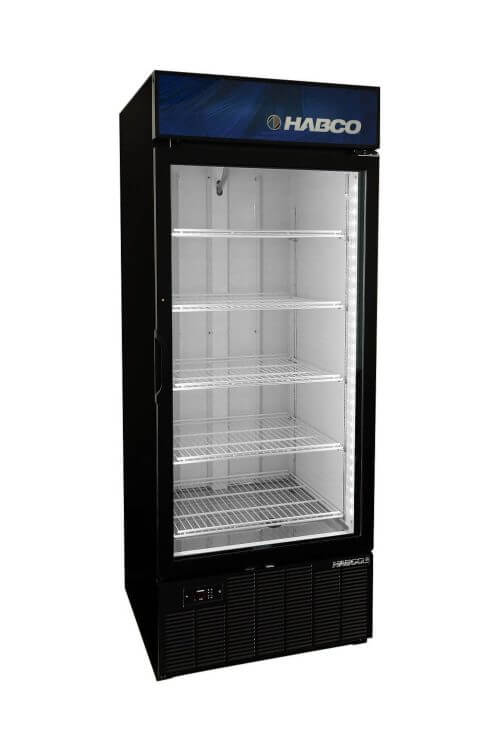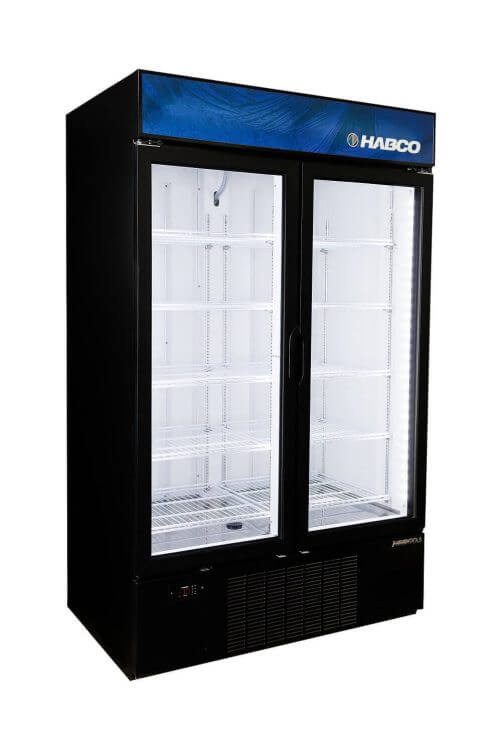Commercial Refrigerator Maintenance Checklist

Keeping your commercial refrigerator in top shape is crucial for ensuring its efficiency and longevity. Regular preventive maintenance plays a key role in preserving the performance of your refrigeration units and keeping your product fresh and safe.
In this blog, we will guide you through an essential maintenance checklist to help you care for your commercial refrigerators effectively.
Understanding the Refrigeration Unit
Before diving into the maintenance tasks, it’s important to understand how a refrigeration unit works and its key components. By familiarizing yourself with these elements, you’ll be better equipped to maintain them properly.
How the Refrigeration Unit Works
The refrigeration unit operates by extracting warm air and releasing cold air to maintain the desired temperature inside the refrigerator. It utilizes various components that work together to achieve this cooling process.
Components of the Refrigeration Unit
Condenser Coils
The condenser coils play a vital role in the refrigeration process. These coils remove heat from the refrigerant, allowing it to cool down and circulate cold air inside the unit. Keeping the condenser coils clean is crucial for efficient cooling performance.
Drip Pan and Drain Hole
The drip pan and drain hole serve as the collection and drainage system for excess moisture and condensation. Regularly checking and cleaning these components prevents mold growth, unpleasant odors, and potential damage to the unit.
Door Gaskets
Door gaskets are the rubber seals that ensure a tight closure of the fridge door, preventing warm air from infiltrating and compromising the cooling efficiency. Inspecting and replacing worn or damaged door gaskets is essential for maintaining proper insulation.
Maintaining Optimal Cooling Performance
To ensure that your commercial refrigeration equipment operates at its best, it’s important to focus on maintaining optimal cooling performance. This involves specific tasks that target key areas of the unit.
Cleaning the Condenser Coils
Clean condenser coils are vital for efficient heat transfer and cooling performance. Dirty condenser coils can obstruct airflow, leading to decreased efficiency and potential system failures. Regular cleaning is essential to keep your refrigeration unit running smoothly.
To clean the condenser coils:
- Disconnect the power supply to ensure safety.
- Remove the lower front airflow grill.
- Cleaning: Use a combination of a common dusting wand and vacuum for thorough cleaning.
- Reinstall lower front airflow grill.
- Reconnect power to appliances.
Checking and Cleaning the Drip Pan and Drain Hole
The drip pan and drain hole are prone to collecting moisture, which can lead to mold growth and unpleasant odors. Regularly checking and cleaning these components is crucial to maintain a clean and hygienic environment inside the unit.
To prevent mold growth and clear the drain hole:
- Locate the drip pan and drain hole, typically found at the bottom of the unit.
- Empty the drip pan and discard any accumulated water.
- Clean the drip pan and drain hole using a mild detergent or vinegar solution.
- Rinse thoroughly and ensure the drain hole is clear of any obstructions.
Inspecting and Replacing Door Gaskets
Door gaskets play a vital role in keeping cold air inside the refrigerator, minimizing energy waste and maintaining proper cooling temperatures. Regularly inspecting and replacing damaged or worn door gaskets is essential to ensure optimal insulation.
To inspect and replace door gaskets:
- Visually examine the door gaskets for signs of damage, such as cracks, tears, or brittleness.
- Close the fridge door and check for any gaps or air leaks along the seal.
- If damaged, replace the door gaskets with compatible replacements following the manufacturer’s instructions.
Ensuring Food Freshness and Safety
Maintaining proper temperature control and preventing warm air infiltration are crucial for ensuring the freshness and safety of the food stored in your commercial refrigerators.
Monitoring and Adjusting Temperatures
Proper temperature control is essential to prevent food spoilage and maintain optimal freshness. Using temperature data loggers allows you to monitor and adjust the temperatures accurately.
To ensure temperature control:
- Place temperature data loggers in key areas of the refrigerator to monitor temperature variations.
- Regularly check and record the temperature readings to identify any abnormalities.
- Adjust the temperature settings as needed to maintain the recommended storage conditions for different food items.
Preventing Warm Air Infiltration
Warm air infiltration can cause your refrigeration unit to work harder and compromise its efficiency. Inspecting and sealing any gaps or leaks in the fridge door is crucial to prevent warm air from entering the unit.
To address warm air infiltration:
- Inspect the fridge door for any gaps or damaged seals.
- Apply appropriate sealing materials to close any gaps or replace damaged door seals if necessary.
Regular Preventative Maintenance
Regular maintenance is key to maximizing the efficiency and longevity of your commercial refrigeration equipment. By implementing a proactive maintenance schedule, you can prevent costly breakdowns and ensure consistent performance.
Benefits of Regular Maintenance
Regular maintenance offers several benefits for your commercial refrigerators. It helps:
- Extend Lifespan: Proper maintenance reduces wear and tear on the components, extending the lifespan of your equipment.
- Optimize Energy Efficiency: Well-maintained refrigeration units operate more efficiently, resulting in lower energy consumption and reduced costs.
- Prevent Costly Repairs: Identifying and addressing potential issues early on through regular maintenance helps avoid expensive repairs or replacements down the line.
- Maintain Food Quality: By ensuring the proper functioning of your refrigeration units, you can maintain the freshness and quality of the food stored inside.
Creating a Maintenance Schedule
Developing a maintenance schedule ensures that important tasks are performed consistently and in a timely manner. Include tasks such as cleaning condenser coils, checking drain holes, inspecting door gaskets, and cleaning interior surfaces.Consult the equipment manuals or reach out to the manufacturer for their recommended maintenance frequency. This can vary based on the type of refrigeration unit, usage patterns, and environmental factors.
Hiring Professional Maintenance Services
While there are maintenance tasks you can handle in-house, it’s often beneficial to enlist the services of professional maintenance providers. They bring expertise, specialized tools, and industry knowledge to ensure thorough and effective maintenance.
Benefits of professional maintenance services include:
- Expertise and Experience: Professional technicians are trained to identify and address potential issues, ensuring comprehensive maintenance.
- Time and Resource Savings: Outsourcing maintenance tasks allows your staff to focus on core operations while ensuring your refrigeration units receive professional care.
- Compliance and Documentation: Professional maintenance providers can help you maintain compliance with industry regulations and provide documentation for inspections and audits.
When hiring maintenance services, consider their reputation, expertise, and customer reviews to ensure reliability and quality service.
Pharmacy-Grade Refrigerator Maintenance

Pharmacy-grade refrigerators require additional attention due to their sensitive contents and regulatory requirements. Here are some specific considerations for maintaining pharmacy-grade refrigerators:
- Specific Considerations: Familiarize yourself with the manufacturer’s guidelines and any specific maintenance requirements for pharmacy-grade refrigerators. These may include temperature monitoring, storage regulations, and data logging.
- Compliance with Storage Regulations: Ensure that your pharmacy-grade refrigerator complies with storage regulations, such as temperature ranges and storage duration limits for medications or vaccines.
- Additional Maintenance Tips: Regularly review and update temperature logs, perform frequent temperature checks, and follow any specific maintenance tasks outlined by the manufacturer.
Choose HABCO for Reliable Commercial Refrigeration Solutions
Regular maintenance is vital for the efficiency and longevity of your commercial refrigeration equipment. By following the maintenance checklist outlined in this blog, you can ensure optimal cooling performance while minimizing electricity costs. Implementing a regular maintenance schedule, hiring professional services when needed, and adhering to specific guidelines for pharmacy grade refrigerators will help you avoid costly breakdowns and maintain the quality of your stored products.
And when it comes to reliable commercial refrigerators, trust HABCO. Explore our wide range of high-quality commercial, pharmacy, and reach-in refrigerators designed to meet your business needs.



